Health Systems Under Attack in Gaza
Part of a series on the impact of the war on all sectors of economic life within Gaza, Anera’s immediate response and plans for the future. Other posts cover livelihoods, housing, WASH, education and food production systems.
“The unrelenting war in Gaza hasn’t spared hospitals, their staff, or the people sheltering there.” – WHO
Gaza, with a population of 2.3 million Palestinians, has suffered the consequences of the attack on its health systems over the last five months. Since October 8th, Israeli forces have systematically degraded Gaza’s health infrastructure, limiting access to healthcare for the sick, injured, and displaced population. Only a fraction of hospitals and health centers remain operational, and those face challenges such as shortages of medical staff, supplies, and electricity. The assaults have also resulted in significant casualties among healthcare personnel and civilians seeking refuge in medical facilities.
A tightened siege, indiscriminate bombardment, and ground invasion have allowed only very minimal and unreliable access to healthcare facilities and supplies. Combined with a shortage of food, water, and energy, the elimination of most healthcare services has endangered the lives of virtually everyone in Gaza, particularly patients with ongoing treatments that abruptly stopped with the onset of war.
According to the UN, there are only 12 partially operating hospitals in Gaza, three partially functioning field hospitals, and seven operating UNRWA health centers out of 23. Only 150 out of 325 known shelters have medical points operating, and that’s at minimal capacity.
The partially operating hospitals in northern Gaza are challenged by an acute shortage of medical staff, medicines, and healthcare supplies, as well as unreliable operation of electricity-dependent medical equipment. As a result, residents in the north of Gaza are deprived of access to health services just as they are suffering from attacks, forcible displacement, and restrictions orders.
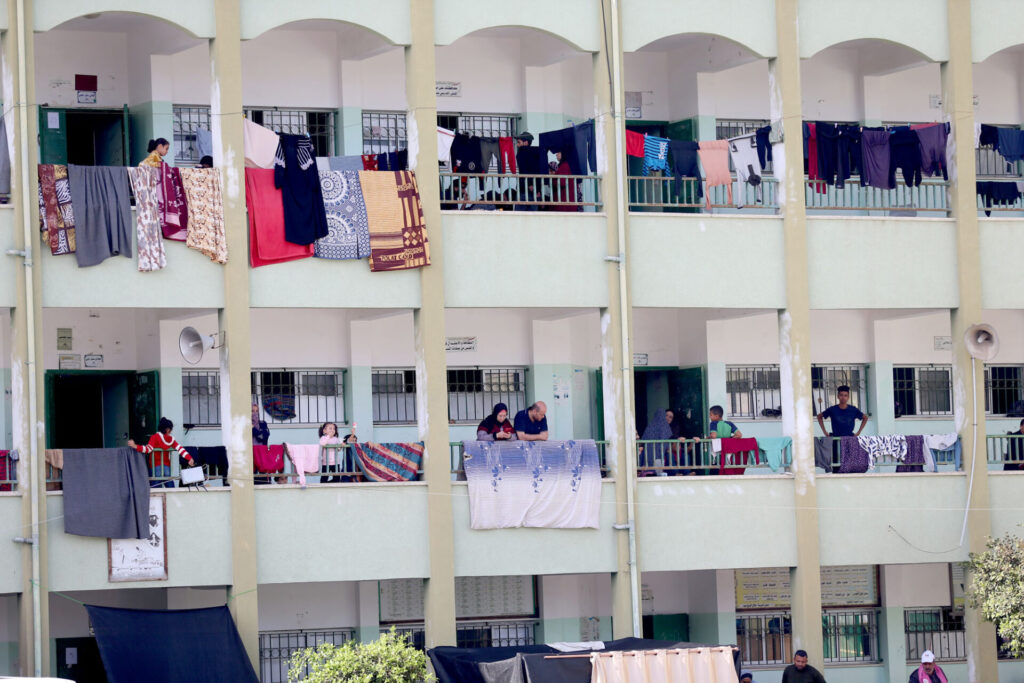

Continued deliberate targeting of healthcare facilities and personnel by Israeli forces has resulted in devastating consequences. The bombardments have damaged 150 health facilities, including 30 hospitals and 123 ambulances – the 300 recorded attacks on health facilities and personnel is a world record for this type of attack! Some 340 health staff have been killed and another 770 injured. The conflict has displaced over 1.7 million civilians, pushing 1.5 million into congested areas with limited access to clean water and sanitation, leading to widespread infectious diseases.
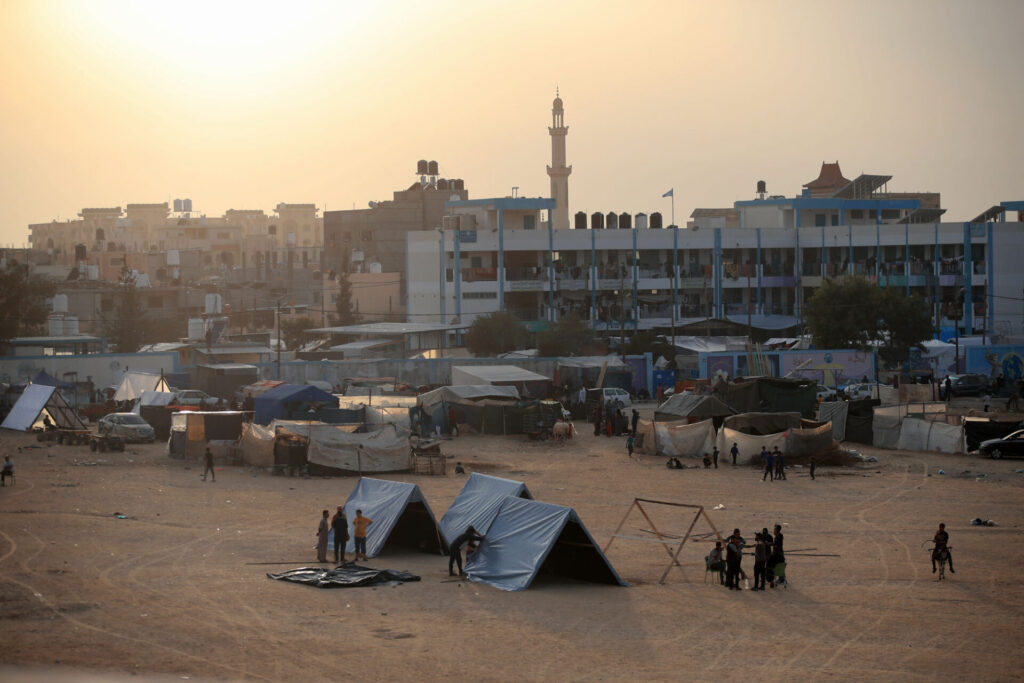

The war has placed Palestinians living with chronic diseases in an even more vulnerable position, including 342,100 patients with non-contagious diseases, 485,000 people with mental health disorders, and 2,000 cancer patients. These patients were forcibly displaced without their medication or access to healthcare services amid brutal winter conditions and bombardment.
Vulnerable groups in Gaza are experiencing unfathomable suffering. Some 111,500 older adults are particularly vulnerable to illness, injury, and mortality. As they cannot endure the strenuous travel to (unsafe) shelters and are unable to flee their homes, older people are forced to endure great discomfort and distress.
The war also significantly affects women’s health. Fifty thousand pregnant women in Gaza are malnourished and prone to disease. Twenty thousand infants have been born into the ravages of the war, with an average of 183 children born daily — most in unhygienic conditions and makeshift tents without access to medical supplies or healthcare. Among the displaced are 17,000 unaccompanied or separated children. An estimated 1 million children — virtually every child in Gaza — require psychological and social support.
Anera’s Rapid Response to Healthcare in Gaza
Since the war began, Anera has conducted more than 40 free healthcare days, prioritizing community health and well-being. Medical professionals, including doctors, nurses, and pharmacists, offer free consultations and treatments to displaced individuals in makeshift shelters. These sessions have revealed a concerning increase in previously undiagnosed conditions such as hypertension. Our healthcare days also incorporate nutritionist services, assessing weight and assisting women with malnourished children in preparing nutritious meals from existing humanitarian aid supplies.
Anera has also distributed 2,852,664 treatments of medicine and healthcare supplies in Gaza. Some of the items are prescribed during our free healthcare days and some go to hospitals and clinics that are still in operation.
As part of Anera’s relief distributions, our Gaza team provides important non-food items like diapers, menstrual pads, and a variety of hygiene items – all of which have become a luxury due to low stocks and soaring prices in Gaza.
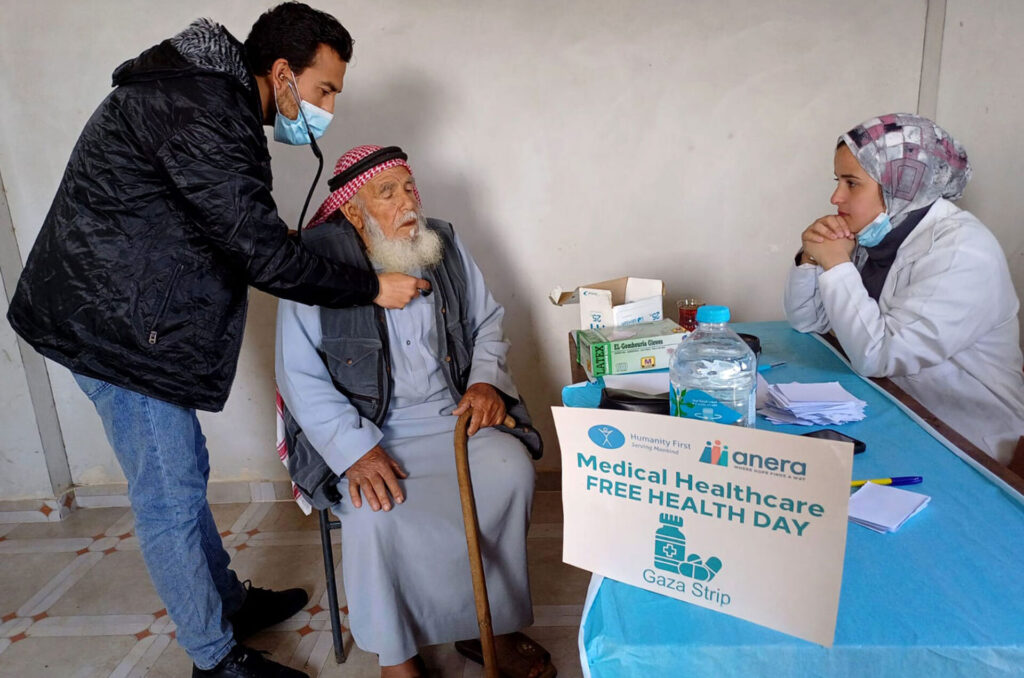

Complementary to our efforts to improve health and well-being and to foster a sense of community during these challenging times, Anera has thus far coordinated 118 psychosocial support activities in school shelters engaging more than a thousand displaced children in fun, healing activities that include competitive games, puppet shows, singing, storytelling and drawing. Our team also dedicates separate sessions to injured children, children with disabilities, and children who have lost family members in the conflict, guiding them in relaxation exercises to practice before bedtime.
The psychosocial support activities also benefit mothers who are offered a space to talk about the traumas they and their families are experiencing. Counselors work closely with parents to guide them on handling children’s behaviors and addressing their stressors.
After a ceasefire, many Gazans will still require urgent health services due to extensive damage to facilities. Persisting needs include treating casualties, addressing deteriorating health from water and sanitation issues, combating food insecurity and malnutrition, and managing vaccine shortages. Anera will continue and expand health interventions as long as necessary.
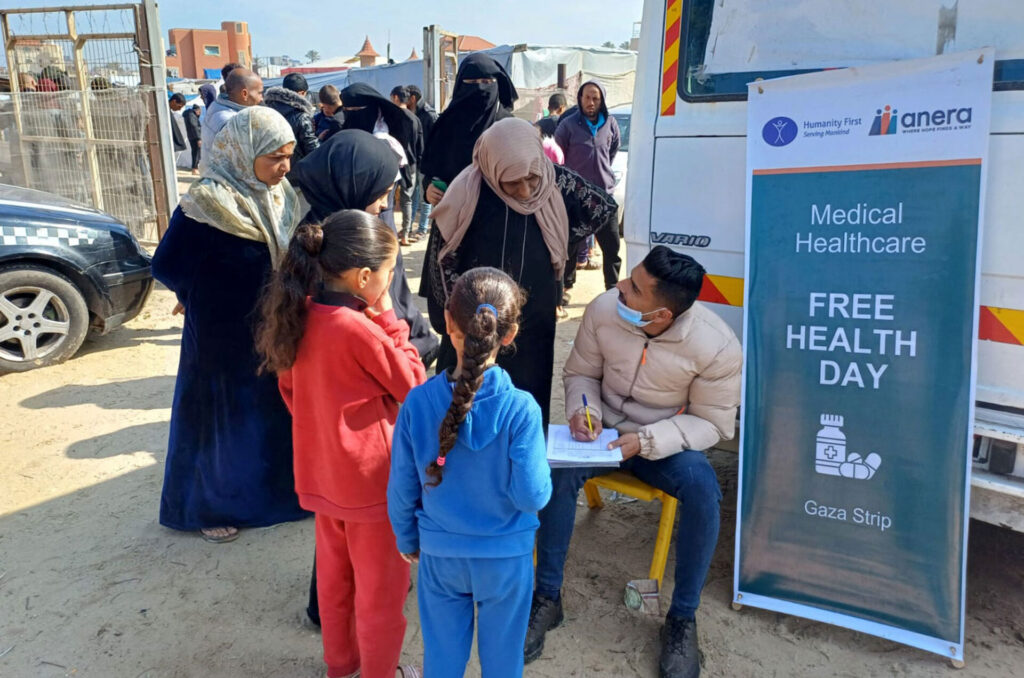

Anera’s Longer-term Response in Gaza’s Public Health Sector
Anera, from the very beginning, has been committed to delivering medication and medical supplies to organizations in Palestine that directly aid patients.
With the collapse of Gaza’s health sector, there’s been a severe shortage of treatment for injuries and illnesses. Anera will address this gap by delivering donated and procured medicine, supplies, equipment, and assistive devices. We’ll also lead efforts to deploy mobile clinics to reach those in remote areas.
Alongside medical aid, Anera will provide psychosocial support sessions for affected children, families, and caregivers. And, to tackle public health challenges, we’ll implement prevention and education initiatives to curb the spread of diseases.
Our long-term strategy involves supporting medical and community health organizations with supplies, cash grants, and implementing psychosocial and public health programs.
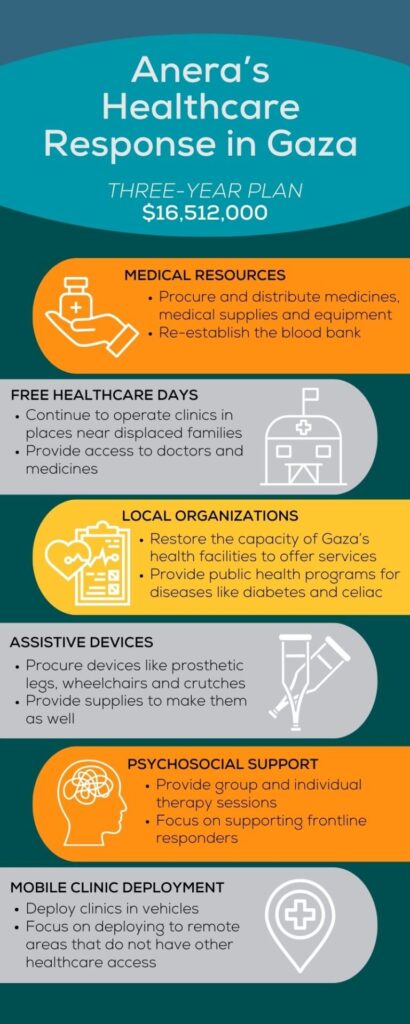

OUR BLOG
Related
Part of a series on the impact of the war on all sectors of economic life within Gaza, Anera’s immediate response and plans for the future. Other posts cover housing, education, WASH, health and food production systems. Livelihood Recovery In Gaza, 57 years of occupation and…
InterAction and 50 Member CEOs, some of whom have organizations that work in Gaza, urge President Biden to take decisive and actionable steps to alleviate the humanitarian crisis in Gaza. Detailed within this letter are specific steps and commitments that…
